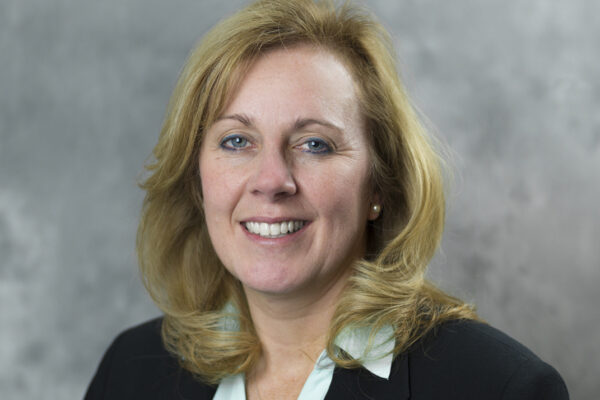As part of Washington University in St. Louis’ ongoing efforts to address sexual assault and misconduct, an advisory group of students, faculty and staff will meet this semester to explore ways to strengthen the Title IX process, policies and practices.
“The experiences and expertise of this committed group will be invaluable to the university as we strive to develop better strategies to prevent sexual assault and misconduct and to improve our response when such incidences do occur,” said Lori S. White, vice chancellor for student affairs.
The 12-member committee will be chaired by Nicole Hudson, assistant vice chancellor for the Academy for Diversity and Inclusion. Hudson said the committee will solicit feedback from students who have engaged with the Title IX Office either as complainants, respondents or witnesses. It will report its findings and recommendations to Provost Holden Thorp and Jessica Kennedy, director of the Title IX Office.
“Our job is to listen,” Hudson said. “By engaging with everyone — those who have experienced sexual assault and those who have been accused of sexual assault — as well as our broader community, we hope to provide recommendations that will make the Title IX process more effective, timely and transparent.”
The advisory committee also will serve as a sounding board for the Title IX Office as it considers policy and procedural changes. Members are:
Students
- James Abraham (junior, McKelvey School of Engineering)
- Katy Hutson (junior, Arts & Sciences)
- Anne Coulomb (graduate student, Brown School)
- Chynna Lewis (graduate student, MSW, Brown School)
- Maren Loe (MD/PhD student, third year, School of Medicine/McKelvey School of Engineering)
- Maddy Yaggi (junior, Arts & Sciences)
Faculty
- Jami Ake, senior lecturer and assistant dean, Arts & Sciences
- Tonya Edmond, professor of social work, Brown School
- Jeffrey Matthews, professor of practice in performing arts, Arts & Sciences
Staff
- Erin Culbreth, senior associate provost and chief of staff
- Austin Sandoval-Sweeney, assistant director of leadership and fraternity/sorority life, Student Affairs
- Travis Tucker, assistant director, leadership & LGBTQIA involvement, Student Affairs
The advisory committee was one of many initiatives to stem from this summer’s working group on sexual assault and misconduct convened by Chancellor Mark S. Wrighton in response to concerns raised by students.
The working group, in consultation with students and members of student group Title Mine, also has implemented numerous other changes, including the addition of new counselors and trauma-informed training and education specialists; substantial expansion of trauma-informed training for the Title IX Office, Habif Health and Wellness Center and other staff; expanded on-call resources at the Habif Center; and the addition of a full-time investigator for the Title IX Office.
Letter to the Department of Education
Washington University submitted a letter to the U.S. Department of Education outlining its concerns about proposed sexual harassment regulations for America’s higher education institutions. Specifically, the university expressed concern about proposed requirement for live hearings with cross examination.
From the letter:
We believe that universities, including Washington University, have worked with their communities to develop grievance procedures that allow decision makers the opportunity to assess fairly the credibility of the parties and witnesses, and to determine the truth without imposing on either party the potentially aggressive and traumatizing experience of cross-examination. We are concerned that the process outlined in the NPRM (notice of proposed rulemaking) would be unduly antagonistic and, as a result, would deter students from reporting instances of sexual assault. This, in turn, would preclude any determination of the truth. There are already many social and cultural barriers to reporting (for example, barriers based upon one’s ethnic or religious background and fears of being socially ostracized by peers). Requiring cross-examination by parties’ advisors in a live hearing will add yet another barrier. Finally, we believe that an overtly adversarial engagement between parties could create unsafe situations for our students by increasing the risk of retaliation, harassment, or other harm.
The Department of Education issued in November its long-awaited notice of proposed changes, which include narrowing the definition of sexual assault and changing reporting and evidentiary guidelines. Higher education institutions had until Jan. 30 to submit their comments.



Comments and respectful dialogue are encouraged, but content will be moderated. Please, no personal attacks, obscenity or profanity, selling of commercial products, or endorsements of political candidates or positions. We reserve the right to remove any inappropriate comments. We also cannot address individual medical concerns or provide medical advice in this forum.